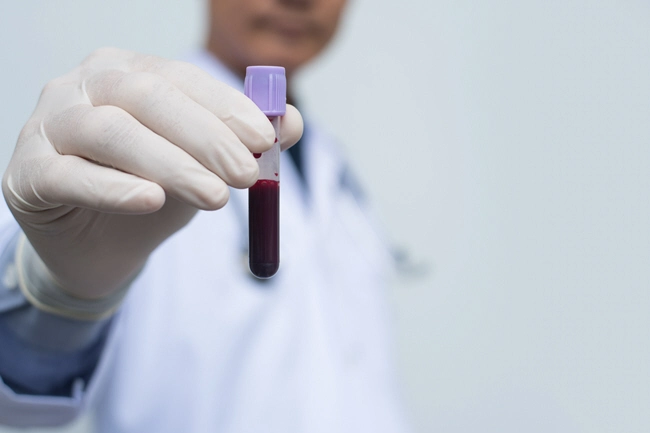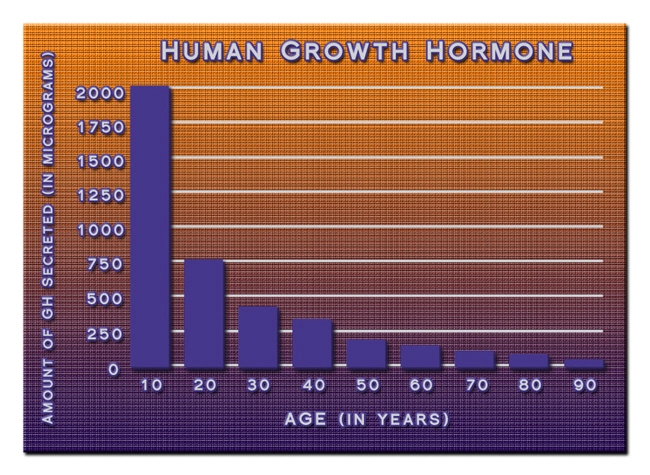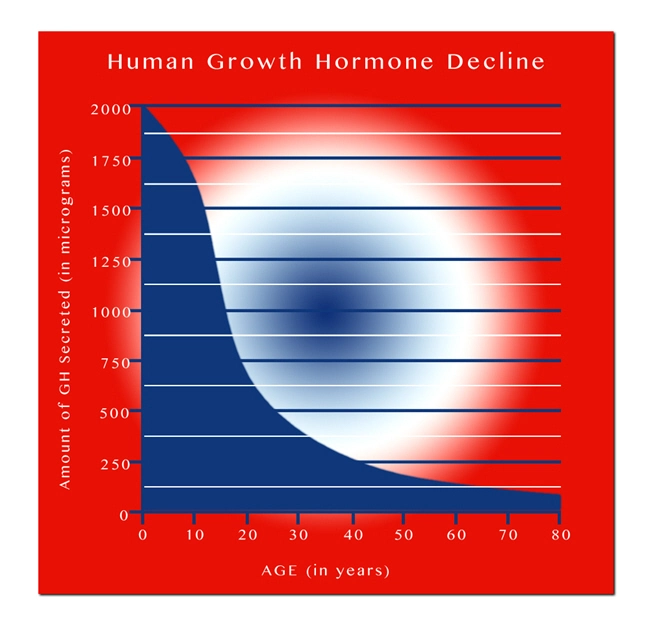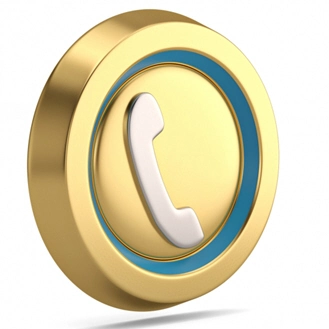
Video Link: https://vimeo.com/287202964
Video Download: Click Here To Download Video
Video Stream: Click Here To Stream Video
Video Link: https://vimeo.com/287203096
Video Download: Click Here To Download Video
Video Stream: Click Here To Stream Video
Here's What You Need to Know to Avoid This Nightmare
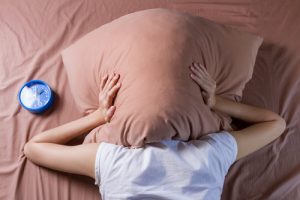 Another night. Another night of tossing and turning.
Another night. Another night of tossing and turning.
Of knowing that you need to get to sleep...and worried that you just can't. Another night of dreading how you'll feel the next day.
And worrying while remembering all the stories you have heard, and the articles you've read about how much damage this chronic insomnia is doing to your body.
And Insomnia Does Do Damage
The studies keep coming in, and they all agree: a chronic lack of sleep is directly linked to a vast array of afflictions. Here's a partial list of health issues that insomnia either causes or makes worse:
- Diabetes. Diabetes and sleep loss are closely related. Chronic insomnia can dramatically increase your risk of diabetes while having diabetes can result in sleep disruption.
- Weight-gain. Lack of sleep causes fatigue and results in eating junk food for convenience. The tired feeling after missing a night of sleep is also an excuse to skip the next day's workout. When you suffer from sleeplessness, your hormone balance is thrown out-of-whack. Two essential hormones are ghrelin and leptin. Ghrelin tells you when you're hungry and when you're are short on sleep, you produce more of it. Leptin has the exact opposite effect. This hormone tells us when we are full and have no need to keep eating. Lack of sleep = less leptin. A vicious cycle.
- Cardiovascular disease. Another vicious cycle. Insomnia can increase your risk of heart disease, and heart disease can wreak havoc on your sleep.
- Increased risk of Alzheimer’s disease, due to the build-up of toxins.
- Diminished cognitive function. It's straightforward: numerous studies have concluded that insomnia = reduced judgment, memory, concentration and attention span.
- Increased risk of accidents. The statistics are scary: lack of sleep is directly linked to one-third of fatal automobile accidents.
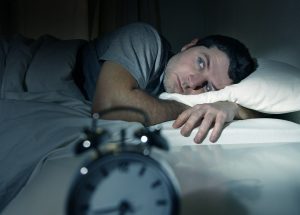
- High blood pressure. Insomnia doesn't do anyone any good, and that applies to high blood pressure as well. Another basic formula: the longer it takes to fall into deep, restorative sleep, the higher the risk of high blood pressure.
- Increased anxiety. Another vicious cycle. Worry keeps people up at night, and lack of sleep raises fear.
- Diminished libido. This applies to both men and women.
- In men, sleep deprivation lowers testosterone levels by as much as 80%! If you are sleep-deprived, your pituitary gland will have trouble secreting growth hormone, which signals the body to manufacture testosterone.
What's Behind This Insidious Epidemic?
As with most health issues, there are many factors involved in causing the problem. Here are a few of the most common ones:
- Our modern lifestyle. In today's high-pressure, fast-paced, constant multitasking, 24/7 connected society, all too many folks just don't consider the importance of sleep. There's so much to do, and so little time to do it. Something has to give, and sadly, it is often going without adequate sleep.
- Poor food choices. The ancient cliché “You are what you eat” once again shows up. Studies have shown that too much saturated fat and too many simple carbohydrates are related to sleep difficulties. Also, gluten can be a problem for some people, due to its effect on blood flow to the brain. And eating simple carbohydrates before bedtime can wreak havoc on blood sugar levels, another cause of sleep difficulties. Finally, food allergies should also be considered. If you are always tired after eating, quite possibly it could be a result of something you are regularly eating. There are two options to deal with this. First, experiment. Try eliminating suspect foods one at a time, and see how you react. Make sure to keep a detailed journal. Second, consider a food allergy test. Those who eat healthily -- mainly related to fat intake -- tend to experience better sleep quality.
- Alcohol. Drinking alcohol to fall asleep can boomerang, and deliver the exact opposite result. Alcohol can interfere with sleep homeostasis, the body's sleep-regulating mechanism. Sleep homeostasis balances the body's need for sleep against how long a person has been awake. When sleep-deprived,
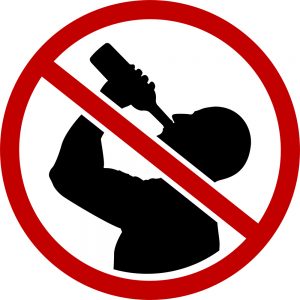 the body produces adenosine, a naturally occurring sleep-regulating component that increases a person's need for sleep. If a person goes to sleep early, sleep homeostasis is disrupted, resulting in waking up in the middle of the night or early morning. Alcohol changes the sleep homeostatic process and puts pressure on an individual to sleep. Then, the sleep period is shifted, and a person may experience disrupted sleep. This is referred to as circadian rhythm disruption. The body has an inner clock that is controlled by the pineal gland. This clock is extremely sensitive, and when it is disrupted from its regular pattern, the result is trouble getting to sleep.
the body produces adenosine, a naturally occurring sleep-regulating component that increases a person's need for sleep. If a person goes to sleep early, sleep homeostasis is disrupted, resulting in waking up in the middle of the night or early morning. Alcohol changes the sleep homeostatic process and puts pressure on an individual to sleep. Then, the sleep period is shifted, and a person may experience disrupted sleep. This is referred to as circadian rhythm disruption. The body has an inner clock that is controlled by the pineal gland. This clock is extremely sensitive, and when it is disrupted from its regular pattern, the result is trouble getting to sleep. - Medications. Both prescription and over-the-counter drugs can cause insomnia. Corticosteroids, statins, alpha and beta blockers, antidepressants, ACE inhibitors, allergy drugs, Alzheimer's medicines, and joint supplements are all possible sleep disruptors. The supreme irony here is this: lack of sleep may cause or worsen the conditions that start the need for these substances in the first place. The ultimate vicious cycle!
- Poor sleep environment. A worn-out, toxin-laden mattress, electronic devices that are on all the time, noise, a bedroom too hot or too cold and excess light all contribute to insomnia. Shut off the TV and computer an hour before bedtime. This will ease the stimulation to your brain and help you relax. Also, make sure you are comfortable with your mattress and pillow.
- Dehydration. Simple logic applies here. The more you are dehydrated, the harder your body has to work to recharge and detox. The longer it takes to detox, the more sleep you need. Unfortunately, dehydration can inhibit your ability to fall asleep. If that weren't bad enough, research has shown that severe dehydration can result in an overactive mind...still another roadblock to falling asleep — another vicious cycle.
- Hypothyroidism. The thyroid gland controls your metabolism, which is defined as the speed your digestive system converts food into energy. When the
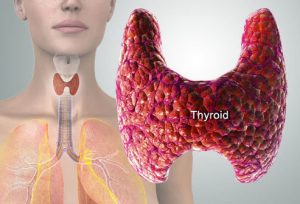 gland is under-active, sleep disruption can occur.
gland is under-active, sleep disruption can occur. - Shift work. The night shift is quite capable of turning your internal clock upside-down.
- Sleep apnea. This hideous affliction is severe, at times, deadly severe since the sufferer briefly stops breathing during the night. This doesn’t just happen once; some studies have recorded multiple occurrences in one night. Naturally, this has a debilitating effect on sleep quality.
- Food timing. For some folks, eating certain foods (or any food at all) in the two hours before going to bed can result in an upset stomach or heartburn. Also, consuming food can cause a release of insulin, which can also disrupt sleep. Finally, drinking copious amounts of fluids in the evening can result in a few midnight bathroom trips. To be on the safe side, try not to eat anything after dinner, and keep evening liquid consumption to a minimum.
So, What Can You Do to Deal With These Sleep-Destroyers?
Fortunately, you're not helpless in your fight to obtain the deep, restorative sleep that is so necessary for optimum health. There is, of course, no “one-size-fits-all” solution; what works for one person may not work for you.
But there are several different approaches you can try. Here are some of the most popular ones:
- Meditation. This ancient discipline is as relevant today as it was several thousand years ago. With enough experience with meditation, one can calm the mind and relax. If sleep continually eludes you, consider learning to meditate. There are several books, online information and local instruction available. Strongly consider taking advantage of the information and begin to practice this time-proven activity.
- Supplements. Melatonin (a hormone that is derived from serotonin, is secreted by the pineal gland mainly in response to darkness, and has been linked to the regulation of circadian rhythms); gamma-aminobutyric acid (GABA) which is a chemical messenger that is widely distributed in the brain; Tryptophan (an essential amino acid);Valerian Root (an herb that has been successfully used for sleep disorders); Glycine (an amino acid and neurotransmitter); Serotonin (a compound present in blood platelets and serum that constricts the blood vessels and acts as a neurotransmitter); Kava kava (an herbal remedy for anxiety); magnesium (an essential mineral that is required for deep, quality sleep, and is also deficient in as much as 80% of the population); Chamomile (another herb that has helped fight insomnia); 5-htp (an amino acid that is a precursor to the neurotransmitter serotonin) and ZMA (Zinc Monomethionine Aspartate, Magnesium Aspartate and Vitamin B6) are the key ingredients to look for when considering sleep supplements. They can be used synergistically, or individually. Experiment, and determine what works best for you. Also, be sure to check with your physician to make sure these supplements are safe for you.
- Improve your sleep environment. Shut off the TV and computer an hour before bedtime. This will ease the stimulation to your brain and help you relax.
 Also, make sure you are comfortable with your mattress and pillow. Pay attention to your room temperature. Not too hot, and not too cold. Cool is ideal for most people. Aim for complete darkness, as this will allow the pineal gland to produce melatonin.
Also, make sure you are comfortable with your mattress and pillow. Pay attention to your room temperature. Not too hot, and not too cold. Cool is ideal for most people. Aim for complete darkness, as this will allow the pineal gland to produce melatonin. - Exercise. Get off that couch! All forms of exercise (resistance, cardio, flexibility, and balance training) are helpful in the war on insomnia. Physical fitness reduces tension, improves circulation and digestion, and has a calming effect on both muscles and nerves.
- Develop regular sleep hours. Our systems respond best to a regular schedule of sleep, just as we get hungry at certain times during the day. Strive to keep your bedtime and wake time in a consistent pattern.
- Cognitive Behavior Therapy for Insomnia (CBTI). CBTI is usually structured as a 6-session treatment administered by a sleep psychologist. The procedure goes beyond basic sleep advice by delving into areas such as sleep education, identifying insomnia triggers, an overview of sleeping pills, developing skills to calm the mind, stomping out the thought patterns that interfere with sleep, and ways to cope with sleep loss. The good news? More than 85% of folks who finish a CBTI program and follow through and put the knowledge to use and improve or eliminate their insomnia!
- Prescription sleeping pills. As a rule, these should only be used after all other methods are exhausted since they do not deliver the kind of deep sleep needed for total rejuvenation. Also, many people experience side effects of being groggy the next day, and this has led to many reports of accidents, both automobile and work-related. They also rapidly build-up tolerance, which means that higher doses are needed to produce the same effect. If you use them, consider them to be a short-term fix, and continue to look for other ways to deal with insomnia.

Deep, restorative, quality sleep time is essential to preventing Alzheimer’s, controlling your weight, keeping your energy levels high, and keeping you super healthy.
In fact, getting a full night’s sleep is the easiest and most efficient way to keep your brain working to the best of its abilities. It can even save your life.
Reference
Can You Afford Sleep? These Companies Are Waking Up with a Strategy!
Contact Us Today For A Free Consultation
Dear Patient,
Once you have completing the above contact form, for security purposes and confirmation, please confirm your information by calling us.
Please call now: 1-800-380-5339.
Welcoming You To Our Clinic, Professor Tom Henderson.

- Are You Constantly Feeling Tired And Fatigued ? [Last Updated On: May 21st, 2024] [Originally Added On: May 1st, 2018]
- Constantly Tired? Can't Sleep? [Last Updated On: April 10th, 2024] [Originally Added On: March 23rd, 2019]
- How to Understand and Deal with Cirrhosis [Last Updated On: April 9th, 2024] [Originally Added On: April 12th, 2019]
- Lipocine Reintroduces Tlando [Last Updated On: July 18th, 2024] [Originally Added On: March 18th, 2020]
- High-Intensity Interval Training Boosts Both Body and Mind [Last Updated On: February 20th, 2025] [Originally Added On: May 10th, 2020]
- Tattoo Safety: What to Know Before You Get a Tattoo [Last Updated On: April 1st, 2024] [Originally Added On: June 2nd, 2020]
- Testosterone and Fatherhood [Last Updated On: May 20th, 2024] [Originally Added On: October 12th, 2020]
- L-Arginine: The Key to Both Heart Health and Sexual Health [Last Updated On: April 6th, 2024] [Originally Added On: December 4th, 2020]
- The Importance of Hormonal Balance for Menopause [Last Updated On: February 20th, 2025] [Originally Added On: December 14th, 2020]
- Menopause Drugs: Study Stokes New Debate Over Cancer Risks [Last Updated On: April 4th, 2024] [Originally Added On: December 16th, 2020]
- Study Examines Link Between Growth Hormones and Osteoporosis [Last Updated On: April 7th, 2024] [Originally Added On: December 17th, 2020]
- Everything You Need to Know About Clomiphene [Last Updated On: April 5th, 2024] [Originally Added On: December 20th, 2020]
- Fast Facts About DHEA: What You Need to Know About This Natural Steroid [Last Updated On: July 15th, 2024] [Originally Added On: March 4th, 2021]
- Enjoy a Few Drinks Weekly? Beware: This May Be a Link to Low Sperm Counts and Quality [Last Updated On: April 2nd, 2024] [Originally Added On: August 16th, 2021]
- Hormone Therapy May Benefit Some Women's Hearts [Last Updated On: February 20th, 2025] [Originally Added On: August 18th, 2021]
- HGH Male Blood Panel [Last Updated On: October 28th, 2021] [Originally Added On: September 28th, 2021]
- Growth Hormone Battles Osteoporosis [Last Updated On: March 31st, 2024] [Originally Added On: October 11th, 2021]
- Growth hormone = More Sleep = Better Sex! [Last Updated On: April 3rd, 2024] [Originally Added On: October 11th, 2021]
- Low Testosterone and Hypogonadism: The Difference [Last Updated On: June 10th, 2024] [Originally Added On: October 12th, 2021]
- The Link Between Testosterone and Tylenol [Last Updated On: March 26th, 2024] [Originally Added On: October 12th, 2021]
- Hormone Replacement Therapy and Aerobics May Ease Menopause Symptoms [Last Updated On: February 19th, 2025] [Originally Added On: October 13th, 2021]
- Growth Hormone and Lifestyle = An Extended Lifespan [Last Updated On: March 28th, 2024] [Originally Added On: October 13th, 2021]
- Growth Hormone, Foods, and Supplements for Healthy Skin [Last Updated On: June 1st, 2024] [Originally Added On: October 13th, 2021]
- Hormone Replacement Therapy, Menopause, and Cancer [Last Updated On: March 29th, 2024] [Originally Added On: October 13th, 2021]
- Growth Hormone, Exercise, and Osteoporosis: The Facts! [Last Updated On: March 27th, 2024] [Originally Added On: October 13th, 2021]
- Hormone Replacement Therapy and Menopause [Last Updated On: March 30th, 2024] [Originally Added On: October 13th, 2021]
- Testosterone and Women [Last Updated On: February 18th, 2025] [Originally Added On: October 13th, 2021]
- Growth Hormone and Smoking [Last Updated On: February 19th, 2025] [Originally Added On: October 14th, 2021]
- Testosterone, Statins, and Prostate Cancer [Last Updated On: February 18th, 2025] [Originally Added On: October 19th, 2021]
- Researchers Investigate Declining Sperm Counts, Find Chemicals Rampant [Last Updated On: June 14th, 2024] [Originally Added On: June 14th, 2022]
- Understanding the Role of Hormonal Balance in Menopause [Last Updated On: February 7th, 2025] [Originally Added On: February 7th, 2025]
- Introduction: Benefits of Hormone Replacement Therapy [Last Updated On: February 8th, 2025] [Originally Added On: February 8th, 2025]
- The Influences and Benefits of High-Intensity Interval Training [Last Updated On: February 8th, 2025] [Originally Added On: February 8th, 2025]
